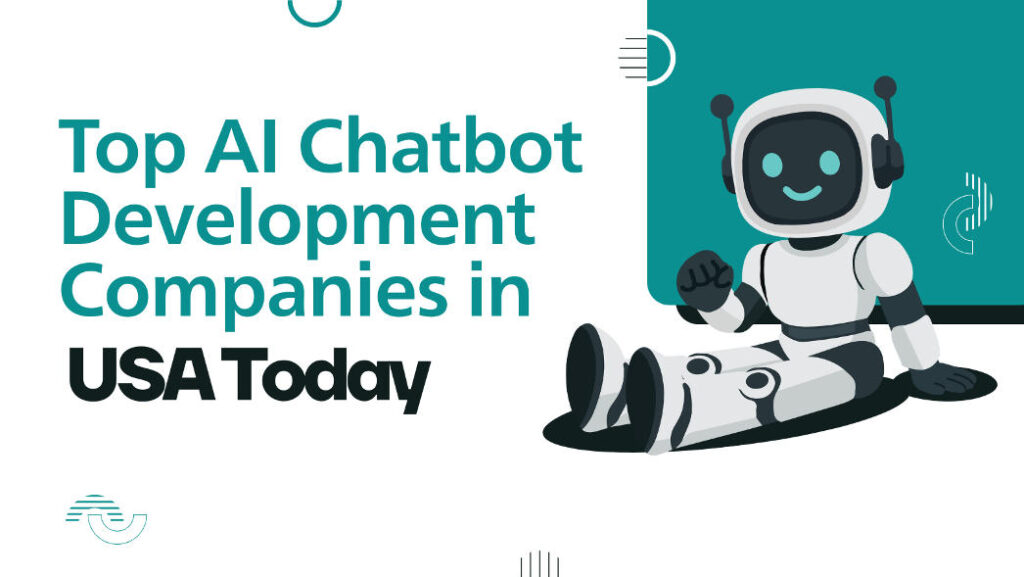Businesses are leveraging chatbot automation services for an increasing volume of customer interaction in today’s world where speed, convenience, and 24/7 availability form the basis for customer experience. But the debate still goes on-whether really chatbots can entirely replace human agents, or are we going to be engineering something hybrid in nature?
This blog shall review what AI chatbots are capable of, and where their limitations lie, along with the pros and cons of human support agents-with a view to help businesses determine when to go for a chatbot and when for human support. So, whether you’re collaborating with a chatbot development agency or scaling up your IT automation platform-retaining this when redesigning your support system during custom website development will become your guide.
Understanding AI Chatbots
AI chatbots are intelligent software applications that simulate human conversation by employing tools such as Natural Language Processing and, in many cases, Machine Learning. Unlike traditional rule-based bots, which work according to fixed pre-set scripts, modern AI chatbots grasp user intent, factor in context in responding, and learn through interactions to keep polishing their acting skills.
Common Features of AI Chatbots
- Instant Query Handling
Chatbots provide instant responses, creating little to no wait time, thereby boosting customer satisfaction. They handle thousands of queries simultaneously without perceivable delay.
- 24/7 Availability
In contrast to a human agent who has to shut operations at the end of a working day, an AI chatbot is operational 24 hours a day, assisting customers anytime-a great option for those that need help at odd hours.
- Pre-Trained FAQs and Journey Flows
The bot has answers to common questions and can take users through a set process like onboarding, booking, or troubleshooting.
- Integration with CRMs and IT Systems
Chatbots should be able to pull and push data to Customer Relationship Management (CRM) systems, ticketing systems, ERPs, and any other backend tools to give sequentially relevant personal assistance.
- Escalation Protocols to Human Agents
It can also escalate an interaction to a live agent with the chat history if a query is beyond the capabilities of the chatbot.
AI chatbots can be deployed in a variety of channels, from websites and mobile apps to social media (WhatsApp, Messenger) and internal IT service desk, making it a very versatile tool for customer-facing and enterprise operations.
Understanding Human Agents
Human agents carry empathy, critical thinking, and emotional intelligence skills. Such qualities are hard for bots to copy. They are mostly appreciated for:
- Pathway for resolution of issues
- Conflict resolution
- Emotional support or escalation
- High-end customer interactions
AI Chatbots vs Human Agents: Head-to-Head Comparison
| Feature | AI Chatbots | Human Agents |
| Availability | 24/7, instant response | Limited to working hours |
| Speed | Instant, parallel conversations | One conversation at a time |
| Emotional Intelligence | Limited or scripted empathy | Genuine emotional understanding |
| Cost Efficiency | Scalable at low cost | High overhead per agent |
| Handling Complexity | Good for routine tasks | Better for complex or unclear issues |
| Training Time | Quick deployment, retrainable | Requires onboarding & experience |
| Consistency | High consistency, no fatigue | May vary with stress/workload |
When to Use AI Chatbots
Today, chatbot implementations benefit from a strategic deployment in customer service and engagement touchpoints. Some of the cases where chatbot automation services can fetch maximum value for an organization are the following:
1. Handling Routine Queries
If your support team is bombarded with repetitive questions from customers, such as:
- “What’s your return policy?”
- “How can I reset my password?”
- “Where is my order?”
AI chatbots provide the ideal solution to address simple queries—it can respond instantly to FAQs, get order statuses, book appointments, and much more, leaving human agents free to attend to more-intensive matters.
Tip: Hire a competent chatbot development company to create domain-specific bots that fit your business workflows.
2. First-Level Customer Support
Chatbots serve as frontline support agents, managing initial interactions before human intervention is needed. They can:
- Categorize and prioritize customer issues
- Collect essential information like name, ID, or issue type
- Run simple diagnostics or troubleshooting scripts
This triaging process speeds up resolution time and reduces ticket backlog for your live agents.
3. 24/7 Customer Engagement
Serving the global community? AI Chatbots can stay put throughout the entire bankers night, 24×7×365 days a year, to ensure your guests are not left long waiting around, even from holidays to weekends.
4. Lead Generation & Qualification
AI bots are powerful tools for capturing and qualifying leads. They can:
- Greet visitors in real time
- Ask pre-qualifying questions
- Segment leads based on interest or intent
By the time a human agent joins, the conversation is already halfway to conversion.
5. E-commerce & Website Navigation Assistance
During custom website development, embedding AI chatbots improves UX by:
- Guiding product discovery
- Offering order updates
- Sending cart abandonment reminders
This not only boosts engagement but also drives conversions and reduces bounce rates.
When to Use Human Agents
1. Handling Complex or Sensitive Issues
Situations involving technical complexity, emotional distress, or financial impact require human judgment and empathy.
Examples:
- A customer upset about a billing issue
- Technical difficulties involving multiple steps or configurations
- Legal or policy disputes
2. Customer Retention & Relationship Management
Whenever these customers are of higher value and a potential churn becomes apparent, the human agents reach out to them personally, propose tailor-made solutions, and thus build trust.
In addition to being sold or cross-sold rarely to any customer who is more loyal or familiar enough with his behavior or needs, we are at times deprived of the button of the AI to think intuitively.
3. Escalation Scenarios
Chatbots are commonly trained for specific flows. In any deviations or instances that show user frustration, an immediate lead to a human customer support should be provided. If such escalation is not offered, it will affect customer satisfaction.
4. Feedback & Sentiment Analysis
AI algorithms will basically read a slight level of sentiment, but the best human agents catch tone, sarcasm, and emotional undercurrents essential to their feedback loop and CX optimization.
Hybrid Model: The Best of Both Worlds
Most companies nowadays are going for hybrid support, leaning on chatbots for speed and efficiency, while going on the human side for empathy and intuition.
A Successful Hybrid Support Strategy Includes:
- Chatbots handle 60–80% of incoming queries (level-1).
- Human agents take care of escalated issues, complex or sensitive ones.
- The IT automation platform integrates CRM, chat history, and performance analytics for unified operations.
- Chatbots learn continuously from tickets that have been resolved to improve their responses over time (incorporating feedback from humans).
Integrating AI Chatbots Into Your Business
An AI chatbot implementation should be methodological the minutest details-from identifying the right use cases to integrating the chatbot with back-end systems. This ensures that chatbot automation services help in starting a scalable and intelligent chatbot ecosystem.4
1. Identify Use Cases
To begin, focus on high-volume and low-difficulty interactions. These may include FAQs, order tracking, and very simple troubleshooting. This is where the highest ROI is delivered by chatbots, also a place where they may free up human agent time on a significant scale.
2. Choose the Right Technology Partner
Select a software development firm that provides bot-building software with:
- Multilingual support to reach different audiences
- Hybrid AI + rule-based logic that ensures accuracy yet maintains flexibility
- CRM and custom website integration for a seamless workflow
- Services related to performance analytics to assess bot efficiency and customer satisfaction
3. Design Conversational Flows
Bots that are effective are not only reactive, but engaging and easy to work with. Ensure all:
- Detailed dialog trees
- Fallback responses and escalation paths
- Brand-based tone and messaging consistency
- Trigger events for personalized interactions
4. Integrate with Your Website & Backend
During your custom website development, embed the chatbot across:
- Homepage
- Product or service detail pages
- Checkout
- Help or contact sections
Also, connect the bot to backend systems through an IT Automation Platform that automates:
- Ticketing workflows
- Inventory queries
- Order status updates
Real-World Use Cases
E-commerce
AI-powered chatbots provide SUN audit: order tracking, returns, shipping updates with instant, round-the-clock responses unable to be perceived by human reception. Manual intervention applies to matters such as damaged items, delayed deliveries, or refund disputes that measure human empathy and discretion.
BFSI (Banking-Financial Services-Insurance)
Banks use these chatbots to check balances, compute EMI, or generate checklists for loan documents. Cases that are complex and require serious consideration-especially regarding filing fraud reports and lodging credit disputes or rendering financial advising-are passed on to human professionals for a more personalized service.
Healthcare
The chatbots schedule appointments, conduct insurance checks, and provide access to test results. Human professionals perform the urgent triage, long-term care, and mental health activities, where value-based human judgment-medical and emotional-is of utmost importance.
Education
Examination bots aid students concerning admissions, course applications, and deadlines. Academic Counselors are the channel concerning curriculum planning, counseling, and all one-on-one academic needs.
Travel & Hospitality
Travel bots book flights, recommend destinations, and provide check-in details. Human agents then get involved in itinerary changes, lost luggage, and VIP services requiring quick decisions and reassurance.
IT Help Desks
In enterprises, bots handle routine IT issues like password resets. Escalated problems such as network outages or hardware failures are resolved by IT specialists.
Conclusion
Strategically, the choice is never binary. While it can be said that software chatbots are quick and available, human services, on the other hand, can address truly delicate issues requiring an element of empathy, critical thinking, or nuance. By correctly leveraging chatbot automations and partnering with a chatbot development company along with an efficient IT automation platform, businesses can build an effortless and scalable support ecosystem. If you’re planning your next custom website development project, prioritize the chatbot-first approach. Both enhance the UX and prepare your operations for automation that will dominate this increasingly digitized world.




